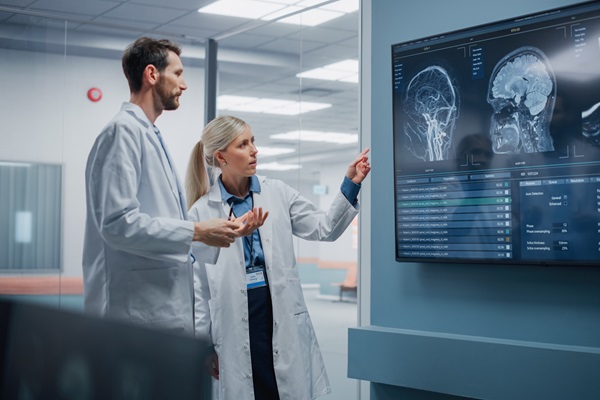What to Expect During Your First Visit With a Neurosurgeon

Meeting a neurosurgeon for the first time can usher in anticipation and anxiety. However, it does not have to be this way. To help ease your concerns and ensure a smooth first visit, here is what you can expect during this initial consultation.
Before, during, and post neurosurgeon consultation
Preparing for the consultation
Many patients need to be aware that care starts before the consultation. To ensure a smooth visit, the neurosurgeon will need patients to gather and organize relevant medical records, including past diagnoses, test results, and imaging studies. Patients can have their primary care physicians, radiologists, or any other relevant healthcare provider send the most recent records to the office. Additionally, patients should provide a list of their current medications, prescriptions, allergies, and prior surgical and non-surgical treatments. This information will provide the neurosurgeon with valuable insight into what made them schedule the visit and aid in the evaluation.
The consultation structure
We suggest arriving at least 15 minutes before their appointment to ensure we have all the necessary paperwork in our system, such as insurance and consent for office policies, and fill out any additional questionnaires.
After check-in, patients will meet with the neurosurgeon to discuss their medical history, symptoms, and immediate concerns. It is important to provide a comprehensive account of symptoms, including their onset, duration, and any accompanying factors. Keep a log leading up to the appointment to provide a full and accurate account if necessary.
Next, the neurosurgeon will perform a physical examination to evaluate the patient's neurological function. This examination may include the assessment of reflexes, muscle strength, coordination, and sensory responses. This examination will allow the neurosurgeon to assess any specific concerns and determine if further diagnostic testing is warranted. These tests may include imaging studies, such as magnetic resonance imaging (MRI), computed tomography scans (CT), or positron emission tomography (PET) scans. These tests provide a detailed view of the brain, spine, or nerves. The results of these scans aid the neurosurgeon in making an accurate diagnosis.
Finally, the neurosurgeon will discuss available treatment options and the success rate of each. Treatments can range from conservative to surgical, depending on the patient's condition. They will review the pros and cons of each option, considering the patient's lifestyle and treatment goals. While the chosen treatment will likely not go into effect on the same day, patients will still have the opportunity to ask questions or share their concerns regarding the recommended treatment plan.
Post-visit considerations
When caring for and assessing any aspect of the neurological system, it may be necessary to have follow-up appointments to prevent misdiagnosis. They may also suggest lifestyle changes, medications, and a follow-up appointment to see if the patient's symptoms result from poor care choices.
Furthermore, patients may need to undergo additional tests or consultations with other healthcare providers in the neurosurgeon's network, usually as a suspicion of another disease or condition. Patients should promptly follow all the neurosurgeon's recommendations to prevent delays in their treatment plan.
Do not delay your treatment plan
We aim to make your first visit to our office smooth and straightforward. Therefore, call us today if you need a neurosurgeon or have questions about preparing for your first consultation. We will help you through every step of the process.
Request an appointment here: https://www.brainandspineni.com or call Brain and Spine Neuroscience Institute at (813) 751-2029 for an appointment in our Palm Harbor office.
Check out what others are saying about our services on Yelp: Neurosurgeon in Palm Harbor, FL.
Related Posts
A spine surgeon is a highly trained specialist who diagnoses and treats disorders of the spine, including both the bones and soft tissues that support the spinal cord and nerves. These surgeons employ advanced techniques to restore spinal stability, alleviate pain, and enhance mobility in patients with complex spine conditions. Understanding the range of issues…
Your baby needs hydrocephalus treatment if there is a buildup of CSF (cerebrospinal fluid) in the spinal column and brain. The telling sign is the enlargement of the heads of young kids and newborns. This excess fluid puts pressure on the brain tissue. This could lead to cognitive and general health issues if it does…
A brain anerusym is a serious condition that occurs in a blood vessel in the brain. It can lead to severe complications, including a rupture that causes brain hemorrhage. Understanding the symptoms, risks, and treatment options can help ensure patients take the necessary and immediate action to prevent the condition from worsening.A brain aneurysm forms…
Traumatic brain injury is one of the conditions that a neurosurgeon treats. The condition is simply a brain injury resulting from trauma – a blunt force to the head or an object breaking through the skull to reach the brain tissue. Depending on the severity of the brain damage, the symptoms can range from mild…
